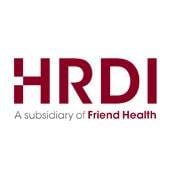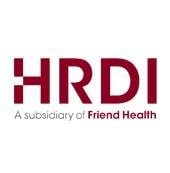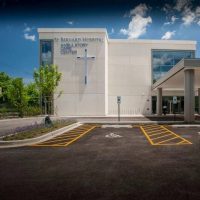Bridging the Tys to Jordan - South Indiana Avenue
Drug Rehab Center in Chicago, Illinois
Jordan to South Indiana Avenue Addiction Treatment Facility in Chicago, IL provides comprehensive, personalized treatment plans for people struggling with substance abuse that include professional support services such as psychiatrists, therapists, counselors, nurses and others, as well as aftercare and relapse prevention; all covered by private health insurance and accredited by SAMHSA and the State of Illinois.
About Bridging the Tys to Jordan - South Indiana Avenue in Illinois
Bridging the Tys to Jordan - South Indiana Avenue is an accredited drug treatment center located in Chicago, Illinois. With their SAMHSA accreditation and State License, they provide top-quality care for individuals struggling with alcoholism, opioid addiction, and dual diagnosis. Offering a range of services, Bridging the Tys to Jordan aims to support patients in their recovery journey.
At Bridging the Tys to Jordan - South Indiana Avenue, individuals can access outpatient treatment, which allows them to receive care while maintaining their daily responsibilities. The facility also provides aftercare support, ensuring that patients have the necessary resources to maintain their sobriety even after completing their treatment program. Additionally, Bridging the Tys to Jordan offers dual-diagnosis treatment, addressing both substance abuse and co-occurring mental health disorders. With their comprehensive approach, this treatment center is committed to helping individuals overcome addiction and achieve lasting recovery.
Genders
Ages
Modality
Additional
Accreditations
State License
SAMHSA
Conditions and Issues Treated
With so many people addicted to opioids, we need to help those who want to quit. The cycle begins when opioid addicts take opioids for a painful injury. When someone starts taking their medication differently or in excess, it means they’re addicted and at risk of overdosing.
In , detoxing from these types of treatments is the most effective way to beat this. Most facilities begin with medical assistance and then provide counseling services; rehabilitation follows after successful treatment.
Dual diagnosis refers to someone who has both an addiction and a mental or emotional illness. Dual diagnosis treatment includes therapy for both issues simultaneously, allowing for effective treatment of either.
Sometimes people with addiction disorders also have co-occurring disorders like depression, anxiety, bipolar disorder, etc. These require specialized treatment programs that address both drug and alcohol addiction as well as psychiatric illnesses. Some rehabilitation facilities provide patients with co-occurring disorders a program with highly integrated services and a clean, distraction-free environment.
Levels of Care Offered
This center offers a variety of custom treatment tailored to individual recovery. Currently available are Aftercare Support, Dual-Diagnosis, Outpatient, with additional therapies available as listed below.
Alcohol or drug addiction, or co-occurring disorders, are treated in an outpatient program. The patient must attend therapy and other programs at the facility but can return home each night.
Outpatient treatment allows recovering addicts to live at home while receiving addiction treatment. Outpatients can attend group sessions for a few hours per week. Outpatients may also continue to work full time and study/attend school without interruption if they choose.
The accomplishment of completing a drug or alcohol treatment program is just the first step. Once that is complete, aftercare support comes into play. This includes helping people adjust to life without substances outside of guidelines with assistance like getting sober living accommodations and career counseling and AA/NA programs for those who are struggling between sobriety or want continued help in maintaining it once they have completed their initial rehabilitation at an addiction facility.
Aftercare comprises services that help recovering addicts readjust to normal day-to-day activities while working on specific issues. These problems include psychiatric issues, family problems caused by substance abuse, continuing education pursuits if desired during rehab, etc. These can last up to one year+ depending on what’s needed most urgently upon completion of earlier stages.
Therapies & Programs
Different people react differently to various treatment options. Some drug rehabilitation centers offer individualized treatment that caters to the specific needs of a drug addict. The best treatment option varies on an individual depending on the type of drug abused, life history, medical condition of the person, social circumstances, and the environment they live in now.
When a person enters drug rehab, they usually have anti-drug associations such as withdrawal symptoms, stress, cravings, etc. The first step of drug rehab is to detoxify the body from any residual substances in it. Drug rehabilitation centers usually employ trained medical professionals to help in this process. Usually, the initial detoxification lasts for five days, where the person is monitored under close supervision.
Couples therapy is a treatment method used to help couples in which at least one member of the couple has a drug addiction. The treatment is designed to help the couple strengthen their relationship to minimize the effects of drug addiction on their lives and promote healthy communication between them.
Couples therapy can be used whether the addicted partner is using drugs or in recovery. It helps the couple create healthy communication and coping skills to minimize the problem-solving abilities of one partner, which can then be directed at solving issues related to their addiction. It also helps couples address problems that may be related to drug addiction. Couples therapy can help couples feel like a team and not feel like their partner is the problem.
Couples therapy is very challenging for both the drug addict and their partner. It requires an intense commitment between the two individuals to participate in the sessions and the homework assigned between sessions.
An additional benefit of couples therapy is that it can help make other types of treatment, such as 12-step programs, more effective.
Family therapy sessions typically involve the addict and their family members. During these sessions, a therapist will work with everyone involved to help them understand addiction and find healthy ways of coping without substance abuse.
Some addicts might feel embarrassed about their substance abuse problems. By encouraging family members to attend these sessions, therapists can show addicts that they’re not alone in dealing with addiction. Therapists can also work with family members to help them understand addiction and learn how to offer support and encouragement to their loved one as they deal with substance abuse issues.
Attending group therapy at Bridging the Tys to Jordan - South Indiana Avenue in , is a useful way for those seeking sobriety to realize they aren’t the only one going through it.
This is when a group of people on different recovery phases get together and talk about what they’re going through, their triggers, successes, and failures. This can include alternative types of therapies too! Group therapy may occur on an outpatient or inpatient basis with groups that have no pre-existing relationships outside the session, unlike support groups where everyone already knows each other beforehand.
Cognitive Behavioral Therapy is a type of psychotherapy that helps people address the thoughts and behaviors that may have led to their addiction. It also helps change negative thoughts into positive ones and promotes healthy communication between addicts and those around them. CBT is an efficient treatment for individuals suffering from all sorts of addictions.
Cognitive Behavioral Therapy (CBT) focuses on the underlying thoughts and behaviors that caused the problem of addiction in the first place and may cause a relapse. Negative feelings are common in drug abuse disorders, but they can lead to co-occurring disorders if not recognized. CBT involves strategies that help to change the behavior pattern by restructuring negative thoughts into positive ones. It helps to remove these feelings, and it provides long-term benefits. Also, CBT promotes self-awareness, self-control and can be administered as a mono-therapy or as part of combination therapy.
Life Skills Services offered at Drug Treatment Centers assists addicts in their recovery by teaching them healthy coping mechanisms that will aid them in becoming sober, focussing on helping people enter into, and maintaining long-term sobriety. Drug Treatment Centers provide Life Skills Services at varying levels of intensity, specific to the needs and requirements of each patient.
Life Skills Services offered at Drug Treatment Centers assists addicts in their recovery by teaching them healthy coping mechanisms that will aid them in becoming sober, focussing on helping people enter into, and maintaining long-term sobriety. Bridging the Tys to Jordan - South Indiana Avenue in Chicago, Illinois provide Life Skills Services at varying levels of intensity, specific to the needs and requirements of each patient.The benefits of Life Skills Services offered at Drug Treatment Centers:
- Restores hope and empowerment — Helps addicts believe that recovery is possible and instills a new confidence in their ability to achieve a positive, drug-free future
- Enhances family involvement — Encourages families to get involved in the recovery process and supports their understanding and encouragement of healthy behavior.
- Increases patient’s compliance — Helps patients take responsibility for and ownership of their recovery and encourages continued progress
- Reduces relapse rates — Encourages long-term abstinence and emphasizes the importance of establishing sober support systems.
Payment Options Accepted
For specific insurance or payment methods please contact us.
Is your insurance accepted?
Ask an expert, call (888) 674-0062
Additional Details
Specifics, location, and helpful extra information.
Chicago, Illinois 60637 Phone Number(773) 488-9460 Meta DetailsUpdated November 25, 2023
Staff Verified
Bridging the Tys to Jordan - South Indiana Avenue Patient Reviews
There are no reviews yet. Be the first one to write one.
Chicago, Illinois Addiction Information
In 2016, more than 2,350 Illinoisans died from drug overdoses. More than 5,500 deaths annually occur in Illinois due to the abuse of alcohol and other drugs. 7.17% of Illinois residents reported using illicit drugs in the past month (2018). Substance abuse costs the state approximately $3.5 billion every year.
Drug misuse can lead to other serious health problems, including HIV/AIDS or hepatitis C infection and liver disease. Chicago's main drugs of abuse include heroin, cocaine, and methamphetamine. Field sobriety tests can be used to determine if someone is driving under the influence of drugs or alcohol. There are about 872 drug treatment centers in the city, and the number of people seeking help for addiction continues to rise.
Treatment in Nearby Cities
- Sterling, IL (107.0 mi.)
- New Lenox, IL (26.4 mi.)
- Harwood Heights, IL (15.3 mi.)
- Monee, IL (26.6 mi.)
- Cary, IL (43.3 mi.)
Centers near Bridging the Tys to Jordan - South Indiana Avenue
The facility name, logo and brand are the property and registered trademarks of Bridging the Tys to Jordan - South Indiana Avenue, and are being used for identification and informational purposes only. Use of these names, logos and brands shall not imply endorsement. RehabNow.org is not affiliated with or sponsored by Bridging the Tys to Jordan - South Indiana Avenue.







